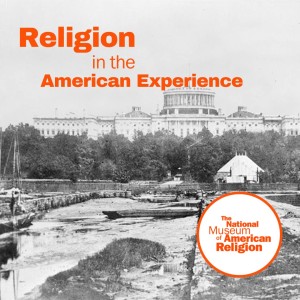
Lodged firmly in the American psyche and a bedrock part of American history, is the Great Depression. Beginning with the stock market crash in October of 1929 - the market lost 50% of its value in weeks - and lasting a decade, it was the worst calamity to hit the United States since the Civil War. Unemployment soared, farms went under, long bread lines formed, people up and left their homes for a better place, and poverty skyrocketed. The emotional toll on millions was just as severe.
For us the question is, in what ways did religion – one of the greatest and most ubiquitous forces in American history – react to the Great Depression? Understanding this will help us comprehend religion’s role in the American project, equipping us to be perpetuate and perfect it more successfully into the 21st century.
As part of our multi-episode series about religion in the Great Depression, Dr. Alison Greene is here to help us understand how the Depression and the New Deal changed the southern Protestant establishment in the Mississippi Delta region. It is a fascinating story.
Dr. Alison Collis Greene is Associate Professor of American Religious History at Candler School of Theology at Emory University, and is an affiliated faculty member in the Department of History at Emory College of Arts and Sciences. She teaches United States religious history, with interests in American religions as they relate to politics, wealth and poverty, race and ethnicity, the environment, and the modern rural South. She is author of No Depression in Heaven: The Great Depression, the New Deal, and the Transformation of Religion in the Delta (Oxford, 2016), as well as a number of essays and articles on modern United States religious history in both scholarly and popular outlets. Dr. Greene is also on the editorial board of the Journal of Southern Religion.
More Episodes
 2024-09-26
2024-09-26
 125
125
 2024-07-25
2024-07-25
 164
164
 2024-06-25
2024-06-25
 143
143
 2024-05-28
2024-05-28
 241
241
 2024-03-05
2024-03-05
 244
244
 2023-12-23
2023-12-23
 206
206
 2023-12-21
2023-12-21
 185
185
 2023-11-28
2023-11-28
 402
402
 2023-10-25
2023-10-25
 226
226
 2023-09-27
2023-09-27
 154
154
 2022-06-06
2022-06-06
 440
440
 2022-06-06
2022-06-06
 282
282
 2022-03-21
2022-03-21
 384
384
Create your
podcast in
minutes
- Full-featured podcast site
- Unlimited storage and bandwidth
- Comprehensive podcast stats
- Distribute to Apple Podcasts, Spotify, and more
- Make money with your podcast
It is Free
- Privacy Policy
- Cookie Policy
- Terms of Use
- Consent Preferences
- Copyright © 2015-2024 Podbean.com






